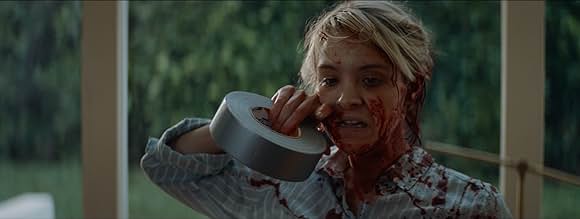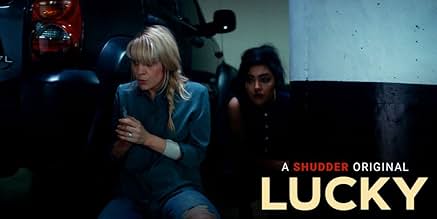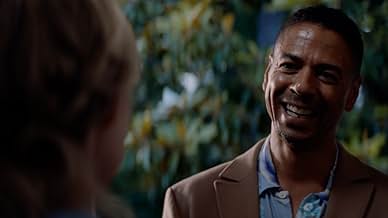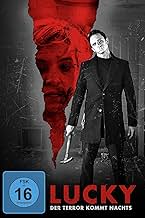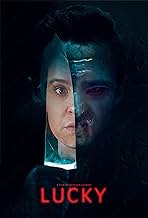Writer and protagonist Grant has something to say about violence against women-- something to say about the ways that some women are hobbled by fear of violence. Unfortunately, what Grant has to say is not clear.
Is Lucky a study on the meaningless surreality of some of these fears, that their focus is on some masked stranger in a parking garage rather than on one's husband, the vastly more likely source of violence? Or is Lucky instead arguing that those masked strangers are inappropriately disregarded as a legitimate source of fear? Does Lucky argue that women need to stick together to escape their chains? Or does it instead tell us that women should "Go It Alone" because solidarity is hopeless? When Grant angrily insists that her success is 100% a function of her hard work, are we as the audience supposed to be cheering for her self-regard or shaking our heads at her self-importance? Are we invited to think that all men (save our husbands, of course) are responsible for our fear, or are we instead asked if we're failing to see "Schrodinger's Rapist" as something other than an object-- a man with a face, many men with many faces?
Maybe Grant isn't sure about any of that, and Lucky is just asking a lot of questions. Maybe it's less of a manifesto, more of a meditation. But if so, even that uncertainty is unclear. Lucky merely allows us to be reminded of our own questions-- or of our own certainty regarding the answers-- and if we have none, then Lucky doesn't do anything to change that.
That might be okay sometimes. Like Inglorious Basterds, Lucky seems to be fine with you ignoring the critical questions. In Lucky's case, in favor of just watching a poppy, PG-13 thriller. Unfortunately, Lucky doesn't travel the traditional scales of pop. It is a thought experiment, with little relationship to reality, yet never embraces this, never surprises us with any genuine weirdness. Any transformation here is transient-- abandoned in the third act. And there is no reveal, no catharsis; the unmasking has no impact on the movie as a work of entertainment. There is no denouement. The plot questions are never answered.
But it's not poorly made: the acting is generally decent (although there are occasional awkward missteps); it's not overly long; the production values are good. Lucky may not hit the targets it aimed for, but it's an acceptable way to blow an hour and a half.



